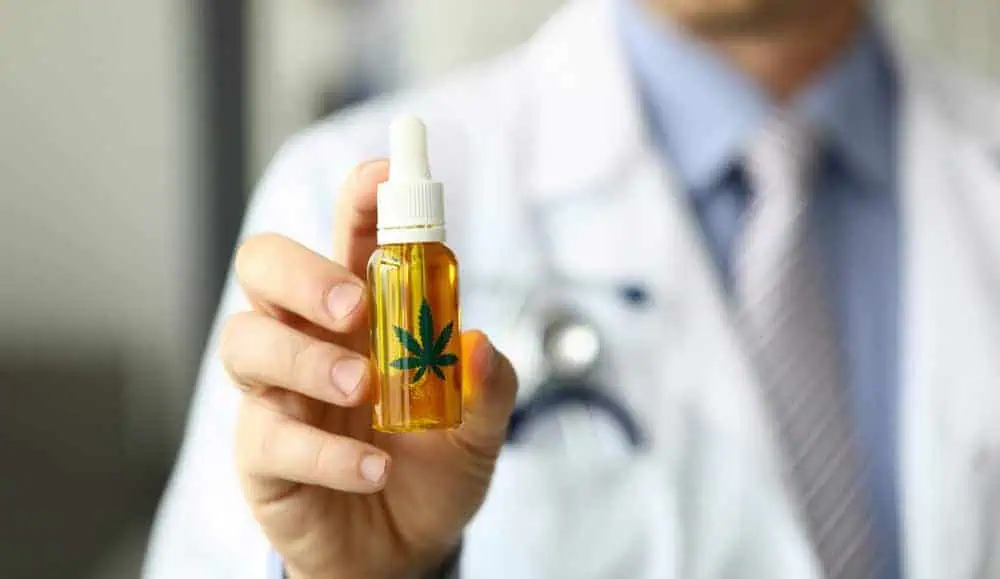Delta-9 THC vs. Other Cannabinoids: What Sets It Apart?
This post contains affiliate links. Click here to read my affiliate policy.
Last Updated on June 20, 2025

You’ve likely heard names like CBD, Delta-8, and Delta-9 THC. They often get grouped together, but they don’t work the same way—and that’s where the confusion begins.
Many people know Delta-9 is different, but are unsure how or why. It’s not just about strength or popularity. There are deeper differences in how it works, how it’s used, and what it offers compared to other cannabinoids.
Instead of guessing, let’s break them down one by one. In this article, we’ll explore how Delta-9 compares to compounds like CBD and Delta-8—so you can understand what makes it stand out.
What Are Cannabinoids?
Cannabinoids are active compounds found in the hemp plant. They interact with the body’s endocannabinoid system, which helps control mood, sleep, pain, and appetite.
While there are over 100 known cannabinoids, a few get the most attention: Delta-9, Delta-8, CBD, and THCA. Each one has a unique structure, leading to different effects in the body.
For example, CBD doesn’t cause a high and is often used for relaxation. Delta-9, on the other hand, does produce a high and has more potent effects. Some cannabinoids are calming, while others may give you energy or change your mental state. Each one works differently depending on its structure and how it interacts with your body’s natural systems.
Delta-9 THC vs. Other Cannabinoids
Cannabis contains many compounds, but not all of them work the same way. Among the most talked about are Delta-9, CBD, Delta-8, and THCA. Each of these cannabinoids has unique effects on the body and mind.
Understanding these differences can help you make better choices based on your needs.
| Comparison of Cannabinoids | |||
| Cannabinoid | Key Benefits | Psychoactive? | Possible Side Effects |
| THCa | – Anti-inflammatory- Neuroprotective potential- May reduce nausea | No | – Risk of contamination (due to unregulated products)- Long-term effects are unknown |
| THC / Delta-9 | – Pain relief- Appetite stimulation- Nausea reduction | Yes | – Dizziness- Dry mouth- Anxiety- Memory issues- Potential dependence |
| Delta-8 THC | – Reduces anxiety- Mild pain relief- Boosts appetite | Mild | – Dry mouth- Dizziness- Sedation at higher doses |
| CBN | – Sedative effects- May aid sleep- Possible pain relief | Very mild | – Drowsiness- Grogginess |
| HHC | – Euphoria- Relaxation- Possible pain relief | Yes (milder than Delta-9) | – Fatigue- Dizziness- Limited research on long-term use |
Key Differences
- CBD does not produce a high. It’s often used for wellness benefits like reducing anxiety or discomfort.
- Delta-8 THC is chemically similar to Delta-9 but less intense. Many users say it offers a smoother experience.
- THCA is found in raw cannabis. It becomes psychoactive only when heated (like during smoking or cooking).
How People Are Using Delta-9
While smoking used to be the most common way to take Delta-9 THC, things have changed. Now, many people prefer other options. These include edibles, oils, and tablets.
One newer option is delta-9 THC dissolvable tablets. These are small, flavorless powders that can be added to drinks or food. They’re easy to carry and don’t have a smell. This makes them great for those who want a discreet and fast-acting product.
The goal is to make Delta-9 easier to use in daily life without drawing attention. This reflects how cannabis products are evolving to meet modern wellness routines.
How It Compares in Legal and Safety Terms
The legal side of cannabinoids can be confusing. Delta-9 THC is legal in some states but not all. However, there’s a legal way to sell it if it’s made from hemp and contains less than 0.3% Delta-9 THC by dry weight. That’s what allows products like dissolvable tablets to be sold in many areas.
CBD is legal in even more places because it doesn’t cause a high. Delta-8 falls somewhere in between. Its legal status keeps changing and can depend on the state.
As for safety: Delta-9 can cause drowsiness, especially in higher doses. It’s best to start low and avoid driving after use. CBD tends to be more tolerable, but it’s still important to read product labels and follow usage instructions.
Why Delta-9 Stands Out
So, what makes Delta-9 different from other cannabinoids? First, it has a more substantial effect. That makes it ideal for those who want a noticeable change in their feelings. Second, it has been studied more than newer options like Delta-8 or CBG. This gives people a better understanding of what to expect.
Also, its wide range of uses—from relaxation to appetite support—makes it popular. And with new formats like dissolvable tablets, it’s easier than ever to try it in ways that fit into everyday life.
Unlike CBD, which works quietly in the background, Delta-9 is more active. And compared to Delta-8, it’s stronger and more reliable in terms of effect.
Final Thoughts
Delta-9 THC remains one of the most talked-about cannabinoids—and for good reason. It has a clear impact, a strong research base, and now, more ways to use it than ever. If you’re considering trying Delta-9, start small and use responsibly. However, always follow local laws and consider speaking with a healthcare provider if you are unsure where to start. Simple, informed decisions make all the difference.






